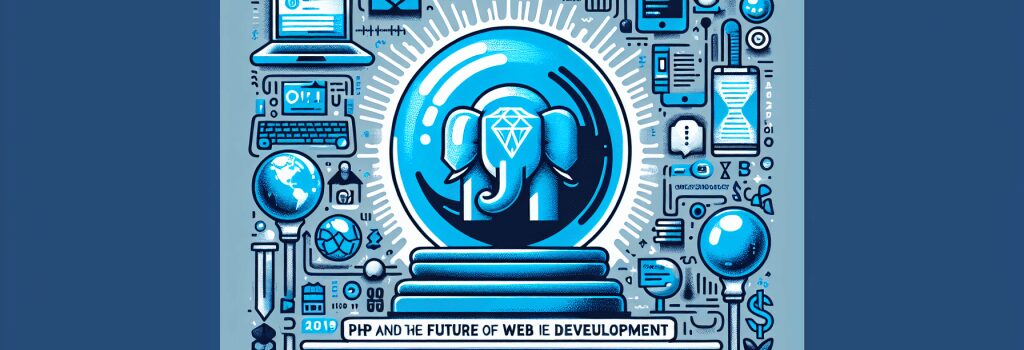PHP and the Future of Web Development: Trends and Predictions

As we delve into the future of web development, PHP remains a pivotal language, powering a significant portion of the internet. Its continued evolution alongside emerging technologies and trends indicates a promising future for developers who specialize in creating dynamic web applications with PHP and MySQL. This article explores the enduring relevance of PHP in web development, highlighting key trends and predictions that will shape its utilization in building dynamic web applications.
The Evolution of PHP in Web Development
PHP has consistently adapted to the changing landscape of web development, from its humble beginnings as a simple scripting language to a robust platform for developing complex web applications. The advent of PHP 7.x versions has significantly improved performance and introduced type declarations, making it a more reliable and efficient choice for developers.
The Role of PHP in Modern Web Development
Despite the rise of newer technologies, PHP maintains a stronghold in web development, thanks to its simplicity, flexibility, and extensive community support. It is particularly favored for content management systems (CMS) like WordPress, which powers a vast majority of websites on the internet.
Accelerated Mobile Pages (AMP)
The increasing importance of mobile web performance has brought Accelerated Mobile Pages (AMP) into focus. PHP developers are adapting by creating more AMP-compatible themes and plugins for WordPress, ensuring faster loading times and improved user experience on mobile devices.
Headless and Decoupled CMS
The trend towards utilizing headless CMS, where the backend is decoupled from the frontend, is gaining traction. PHP is at the forefront of this movement, with WordPress and other PHP-based CMS offering headless capabilities. This approach enables developers to use JavaScript frameworks like React or Vue.js for the frontend while managing content through PHP on the backend.
Integration with Emerging Technologies
The integration of PHP with emerging technologies such as machine learning, IoT (Internet of Things), and blockchain is opening new avenues for web applications. PHP developers are leveraging these technologies to create more intelligent, secure, and dynamic web solutions.
Security Enhancements
Security remains a top priority in web development. PHP’s ongoing updates and improvements in security measures are making it harder for malicious attacks to succeed. Furthermore, the PHP community constantly develops and maintains libraries and frameworks that adhere to the latest security standards.
The Future of PHP and Web Development
Looking ahead, PHP is expected to continue evolving with a focus on performance, security, and compatibility with cutting-edge technologies. The demand for PHP developers proficient in creating dynamic, secure, and high-performing web applications is projected to remain strong.
Emphasis on Serverless Architecture
Serverless architecture is gaining popularity, allowing developers to build and run applications and services without managing infrastructure. PHP’s compatibility with serverless frameworks is improving, making it a viable option for developing serverless web applications.
Growing Importance of PHP in API Development
As web applications become more feature-rich and complex, the need for efficient API development grows. PHP is increasingly used to develop RESTful APIs due to its simplicity and effectiveness, facilitating seamless communication between different software components.
In conclusion, the future of web development with PHP and MySQL is bright, filled with opportunities and challenges driven by technological advancements and changing web standards. As PHP continues to evolve, it remains an essential tool in the web developer’s arsenal, adaptable to the dynamic needs of modern web applications. The language’s versatility, combined with the latest trends in web development, ensures that PHP will continue to play a key role in shaping the internet for years to come.


